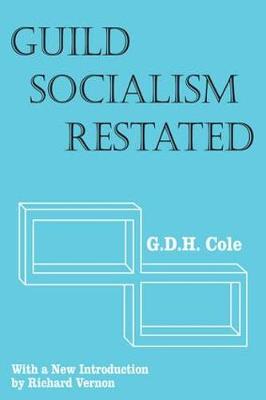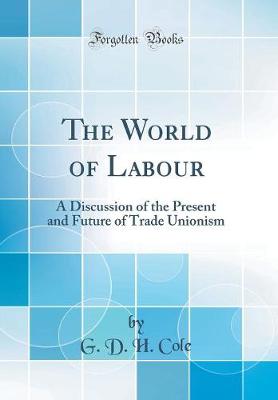Routledge Library Editions
6 total works
First published in 1920, Guild Socialism Restated is G. D. H. Cole's fullest and most systematic ac-count of his vision of industrial and political reorganization. An Oxford University political theorist and an influential figure on the British Left between the two world wars, Cole was the best-known advocate of Guild Social-ism-a form of socialist thought that sought to transfer control of industry to professional "guilds" or self-governing associations of producers.
The introductory chapters of Guild Socialism Restated develop the theme of democratic citizen-ship in relation to industrial so-ciety. Cole contends that neither capitalism nor state socialism can adequately meet the fundamental requirements of democracy be-cause neither provides institutions through which active citizenship can be achieved. He insists that the latter can be realized only in the realm of industrial relations. In so doing, Cole anticipates such contemporary themes as workers' self-management and participatory democracy, and he envisions also the corporatist mode of or-ganization that some would see as a defining quality of postindustrial societies.
The central chapters of the book develop a view of socialist organi-zation in which citizenship is a vital ingredient in every arena- from that of the workplace to na-tional policymaking. Guild So-cialism Restated is also notable for its effort to come to terms with nonindustrial interests, and to provide representations for indi-viduals as consumers and citi-zens-not only as producers.
Cole's book concludes with an assessment of the transition to so-cialism. He proposes that there is a "third way" in addition to politi-cal reform and civil war-one that will be both revolutionary and gradual. Cole writes that "he who wishes revolution to succeed should hasten towards it slowly."
This volume compares the planning of economic conditions under the very different political systems of Soviet Russia, Fascist Germany and Italy and Democratic America, with some discussion of partial economic planning in Great Britain. It includes a broad survey of the successive phases of the Five Year Plans in the Soviet Union, the "New Deal" in the United States, and the diversion of the German economic activity to war preparation under the Nazi Four Year Plan. The author discusses the essential conditions for successful economic planning.
This book represents an important stage in the development of an indigenous theory. The argument is presented with the special qualities of cogency and perception which have given the author a lasting influence within the labour movement.
Cole saw the trade unions as being critical to progress, but to realise their role they needed to change and the issue of trade union structure therefore became fundamental. He considered in this volume that trade union structure was a central problem of the labour movement - he described British trade unionism as a movement bereft of ideas and policy. He discusses the evolution in the trade unions to cover not only wages and working conditions but the organisation and control of industry.
Originally written as a series of pamphlets and at a time of high unemployment, this volume discusses free trade, monetary policy, wages and employment, economic theory and social legislation.
This volume traces the attempts made after the Napoleonic Wars to link up all the numerous local and sectional Trade Societies into a single comprehensive `General Trades Union’ – attempts which culminated in the short-lived Grand National Consolidated Trades Union formed under Robert Owen’s influence in 1833. Based on materials not previously used by historians, this book throws new light on the development of Trade Unionism, particularly in the North of England, during these critical years.





